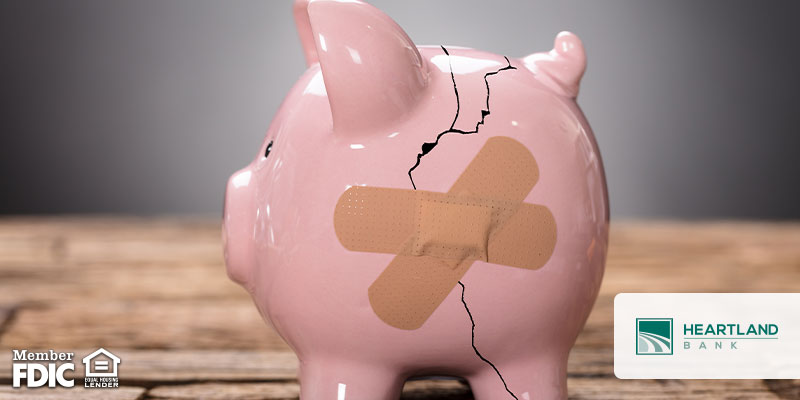
It finally happened – you had to spend your emergency fund. The good news is you had a fund, but the bad news is you spent it. Where do you go from here and how do you rebuild what you had? We wanted to offer some insight on ways you can begin to rebuild your emergency fund for the next rainy day.
Say ‘Bye’ To The Unnecessary
That gym membership and extra show subscription will have to be canceled for now. You can get by without, as saving for the next emergency is more important than having Netflix, Amazon Prime, Hulu and HBO all at once. Find the right balance though, as it’s still okay to treat yourself every once in a while with a small expense.
Put Other Goals On Hold
If you were hoping to renovate your home or go on a big vacation, you still can, but maybe wait awhile. All that savings you were adding to that fund could partially be transferred into your new emergency account. It’s important to stay prepared, as you never know when the next disaster might strike.
Get A Side Gig
Acquiring another job can be very beneficial for making money quick. Use your marketing skills to do some work for clients on your own or wait tables for a few months. This will help you get back on track before you know it. Tutor, give music lessons, babysit, pet sit, dog walk or design wedding invitations – whatever your skills or availability, you can find a side gig that works for you.
Start Saying ‘No’
You don’t have to turn down every opportunity, but try to say ‘no’ here and there while rebuilding your funds. Should you be spending money on eating out if you already did it once this week? No. Should you spend money on a new outfit or tickets if you already treated yourself this month? No. Be a little more stingy while saving again, as it’ll come in handy the faster you replenish your fund if something happens suddenly.
Sell Something
You have plenty of clothes and decor that are no longer of use to you. There are probably old electronics lying around as well that you don’t use anymore. See what you can sell online or bring to a thrift store for a couple of bucks. You’re decluttering and adding money to your account – we couldn’t be more proud of you!
Don’t let this minor setback discourage your financial independence. You were well-prepared by having your first emergency fund in place, so now it’s time to make the next one bigger and better than ever. If you’re looking for a great place to store that rainy day fund, our savings accounts are always available for you!










